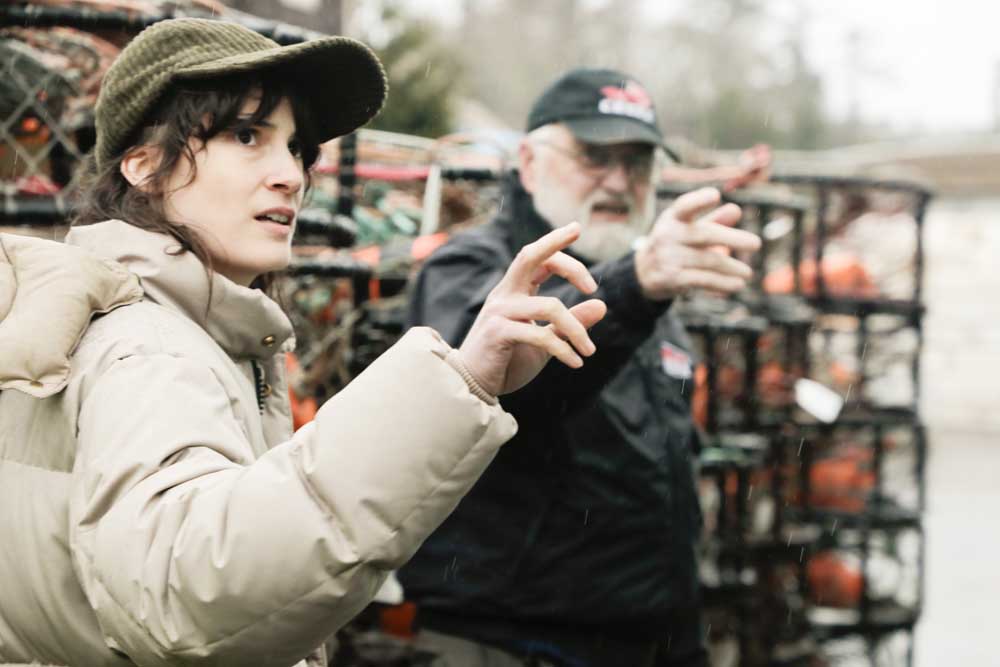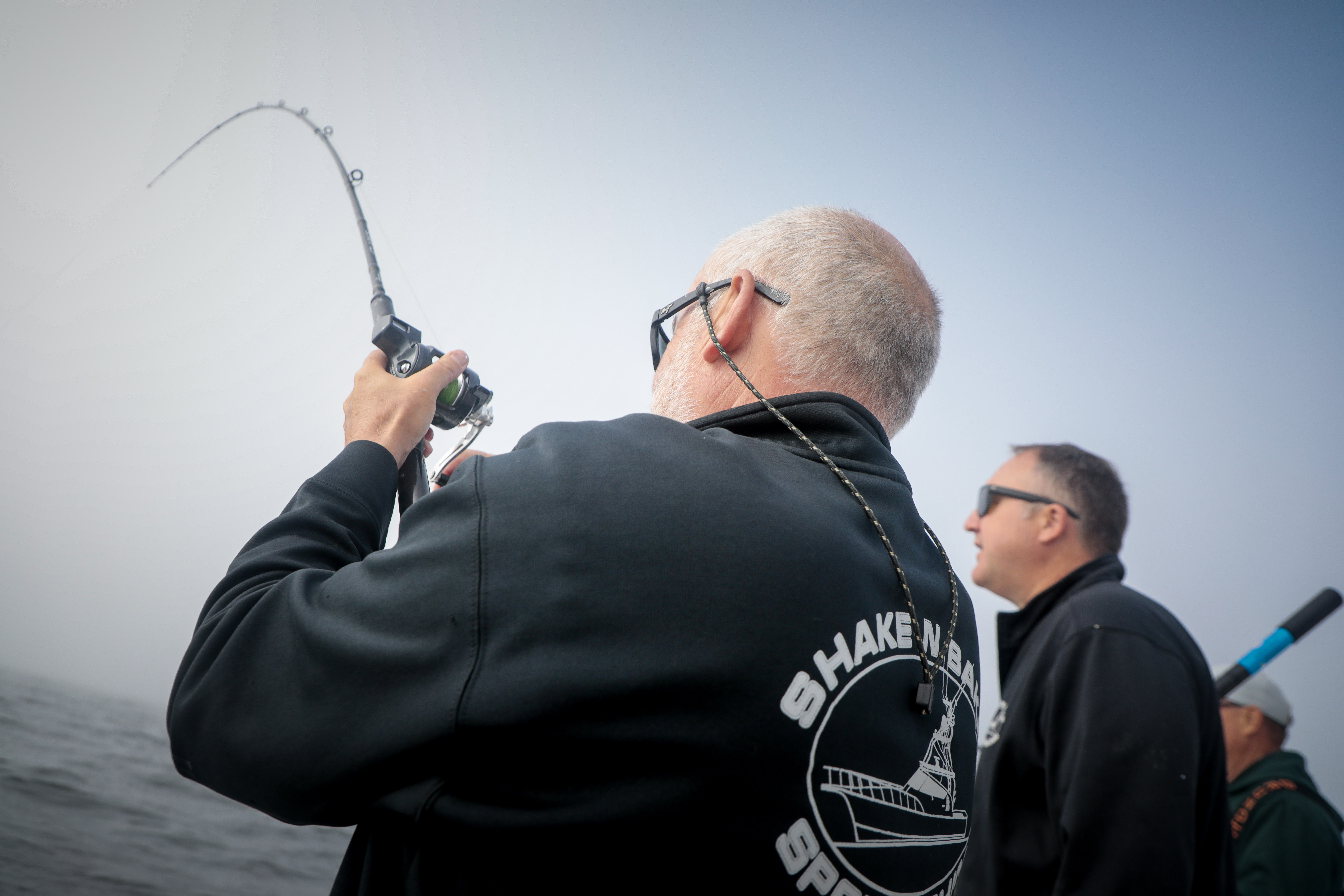Shotwell appeals murder conviction
Published 7:14 am Tuesday, October 29, 2024

- Murder defendant Thomas Shotwell enters the Pacific County Superior Courtroom last year.
NEMAH — Convicted murderer Thomas A. Shotwell, 29, has filed a formal appeal with the Washington State Court of Appeals Division II for his Oct. 19, 2023, second-degree murder conviction for the shooting death of his twin brother Raymond A. Shotwell in Nemah on June 17, 2021.
Trending
He is serving a 15-year sentence in the Washington State Penitentiary in Walla Walla.
Shotwell’s trial was one of the highest profile cases in Pacific County over the past decade and teetered on a diminished capacity defense. Witnesses and experts testified at the trial, telling the story of two close brothers who were inseparable.
Facts of the case
The events that took place on June 17, 2023, are still not entirely known to this day.
The Pacific County Sheriff’s Office was dispatched to the incident at 1:17 a.m. after Thomas called 911 and reported he had shot Raymond and that he was dead. Thomas then fled the scene and was later located by law enforcement in Bay Center unresponsive and clinging to life — as a person with type-1 diabetes, he had entered diabetic shock.
Thomas was represented in the case and trial by local defense attorney Nathan Needham of Needham-Glenn Law, based in Long Beach, and high-powered Seattle attorney John Henry Browne.
The duo relied on an unsuccessful defense that he was out of touch with reality at the time of the incident and expert testimony from psychiatric Dr. Richard Adler who argued Thomas was under Cannabis Induced Psychosis from using a vape pen. Defense expert Dr. Haley Gummelt, a psychologist for the state, countered the claim and argued Thomas’s actions were too calculated for him to be in psychosis.
According to court records, Shotwell is represented by appeals attorney Thomas E. Weaver, who makes three key arguments:
• That his defense counsel did not properly investigate and prepare a diminished capacity defense;
• Judge Donald J. Richter erred when he allowed a firearm not used in the perpetration of the crime to be entered as evidence;
• Richter did not provide Thomas with two years’ credit on his sentence for the time he spent under house arrest.
The filing also fills in some gaps about what happened during the killing on June 17, 2023. This is information that was not apparent in his trial, in which his defense counsel alluded to him having no recollection of the events.
“Although Thomas did not testify, the jury did hear his side of the events of that night from his forensic psychiatrist,” Weaver states in the brief. “On the evening of June 16, Thomas came home to find his brother on the internet. Raymond told him not to unplug the internet, but Thomas nevertheless unplugged it.”
“He then smoked from a vape pen. Thomas thought Raymond was going to kill him. Thomas retrieved his Smith and Wesson handgun and shot his brother. He could not recall where he aimed the gun. Raymond had been standing, then he fell over after being shot. Thomas was still in a paranoid state. Then snapped out of it like he was gaming,” Weaver adds.
Main point
The main contention in the brief is Needham and Browne’s failure to adequately pursue an insanity or diminished capacity defense, considering that Adler in his report mentioned he “may elect to address the relevance of Diminished Capacity to the crimes charged.”
A diminished capacity case relies on the defendant suffering from a mental impairment or illness that impacted their ability to have the necessary element of intent to commit the crime. Insanity or diminished capacity defense is used in about 1% of cases and is rarely successful.
Shotwell, who had several health issues, might have met the standard of the law due to Addison’s disease and brain damage from diabetes.
The defense did not acquire any further evaluation from Adler on the issue, and Richter ultimately ruled before closing arguments that the jury could not consider the defense.
“Under the totality of circumstances, defense counsel was deficient in failing to obtain a supplemental evaluation from Dr. Adler,” Weaver states in the brief. “On the other hand, defense counsel erroneously believed he could argue diminished capacity without expert witness testimony and, therefore, did not believe getting a supplemental report necessary.”
“…Defense counsel repeatedly represented to the trial court that diminished capacity was a ‘much more realistic’ defense. Under the totality of this record, Thomas was clearly under the impression that he was proceeding to trial with the dual defense of diminished capacity and insanity, not knowing that his lawyer had failed to adequately perfect the former defense,” Weaver adds.
Weaver also shaded Browne’s previous moves at insanity defenses, stating, “It should be noted that Thomas’s lawyer, John Henry Browne, has a history of overselling mental health defenses to his clients.”
The appellant brief requests that the case be reversed, remanded for a new trial, and that the trial court credit Thomas for his time under house arrest. The appeals court typically takes months before issuing a ruling.
Stretched thin
The Pacific County Prosecutor’s Office has yet to file a formal reply to Weaver’s brief. On Oct. 16, the agency filed a motion for a time extension through Dec. 16. Pacific County Prosecutor Michael Rothman argued that his agency is currently operating with a thin team.
“In the last four months, we have lost our chief criminal deputy and our chief civil deputy, and that constitutes not only our top tier attorney positions but also 40% of our attorneys,” Rothman states in the motion for an extension. “Also, we have lost two support staff.”
“We are responding to [three] homicide appeals at this time. Due to our office being very small and our recent shortage of attorneys and staff I am struggling for time to complete the respondent’s brief. I have outsourced help from another attorney to handle this appeal,” Rothman adds.
The appeals court has not yet ruled on Rothman’s motion.









